Why Probiotics Need to Be a Part of Your Daily Routine
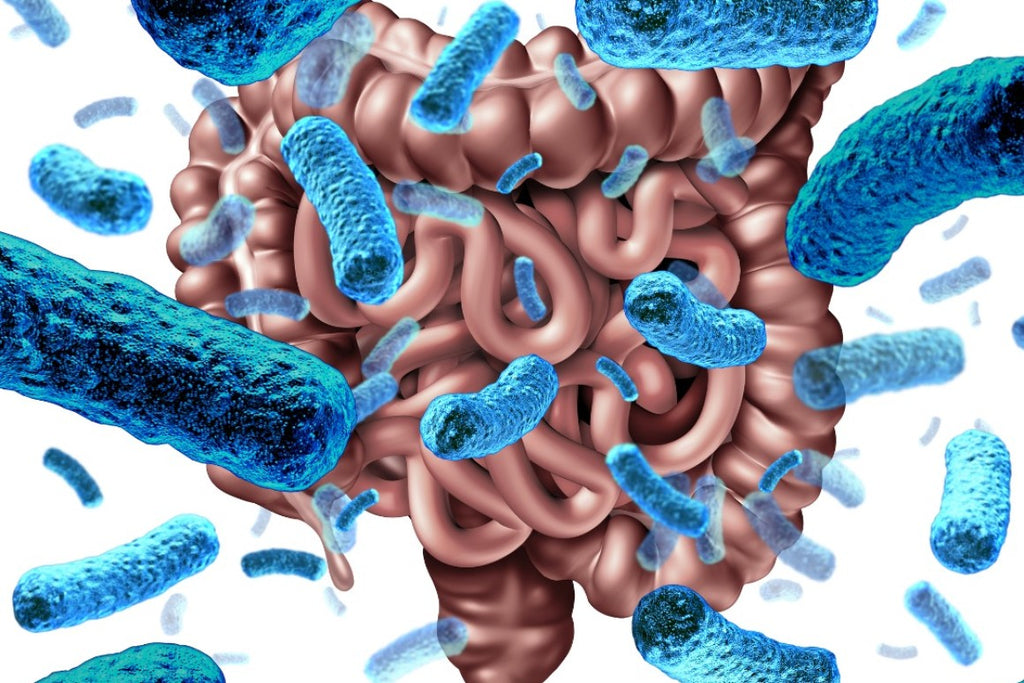
Probiotic supplements help gut health, may improve your mood, and help you digest your food. We’re sure you’ve heard all that, but you might not understand what the best probiotic to help you is. We want to clear up that confusion.
So, let's start with what probiotics are. Probiotics are a classification of bacteria and yeasts that exist within our digestive system that help digest food, protect our bodies, and some produce nutrients for us. There are hundreds of trillions of individual life-forms, equating to approximately 5 lb of our weight.
All of them are necessary, and when balanced, they significantly improve our health. However, if they get out of whack, they can cause problems.
There's also the prebiotics. These are types of fibers that support the probiotics in your gut. Natural foods contain lots of prebiotics.
The final classification is digestive enzymes. Our bodies produce dozens of digestive enzymes, the most common of them known as lipase, protease, and amylase. For people who are under-producing the digestive enzymes naturally, a digestive enzyme supplement can help.
We are going to focus on the probiotics today, and will touch on digestive enzymes in another article.
Importance of Gut Health & Probiotics
Probiotics do beautiful things for our bodies. When balanced, they help digest our food, and some of the bacteria (Lactobacillus lactis) and yeast produce vitamins, like vitamin K. Other types of probiotics help break down long-chain carbohydrates so we can utilize them better. Others help break down large molecules of minerals so that the smaller ionic form can be absorbed properly.
There are several hundred different species of probiotics. We’re going to cover some of the specific species and a couple of genera that you want to look for in your probiotic supplement. All of these probiotics work together, which means you don’t want to focus on just one or two.
Another underappreciated role of probiotics is in protecting our bodies from foreign invaders – bacteria and viruses. Many of the probiotics within our gut out-compete other invading bacteria. They crowd out the invaders, starving them, and even killing them. Most probiotics help stimulate or support immune system activity in various ways.
Keeping a balance of probiotics in our gut is essential especially when it comes to the E Coli bacteria and the Candida yeast. In different parts of our digestive system, both of these probiotics are useful. E-coli actively destroys foreign bacteria in our gut, acting as a shining knight. Candida breaks down individual fibers, are toxic to specific pathogens, and helps us absorb some vitamins and minerals.
But, if either of these getting to the wrong place or overpopulate, it causes problems. E Coli infections can be deadly. Candida can cause all sorts of issues, including anxiety, body odor, IBS, and many other difficulties that we highlight in this article.
Our immune system is highly dependent on the probiotics in our gut being well-balanced. With 70% of our immune system in our gut, keeping that balance is essential. We have more on that below.
And finally, in some groundbreaking research that has come out over the past couple of years, scientists finally recognize a healthy probiotic balance in our gut influences the whole body. When things are not working well in our guts, it can cause mental problems like anxiety, depression, and moodiness. It can affect the adrenal system and cause hormonal imbalances, which can lead to things like diabetes, hypothyroid, and reproductive problems like PCOS.
Some other research shows that probiotics influence the stability of our bones, how well we retain muscle, and even aesthetic concerns like gray hair and wrinkles.
How Probiotics Help Reduce Gas, Bloating, and Constipation
With everything that the gut can do, producing gas is one of our least favorite. When we eat a diet filled with vegetables, 100% whole grains, and whole cuts of meat, we feed the good probiotics and reduce the chances of our gastric distress.
But, we don’t want you to think of probiotics as good and evil. All of the probiotics in our system at some point do good for us. It’s when they overpopulate or get into the wrong place they cause problems.
Many different types of gut bacteria produce methane gas and hydrogen sulfide gas as byproducts of consuming low-quality fibers and sugars. These are the rotten smells produce when somebody passes gas.
And before that gas passes, it can cause bloating. Between the gas building up and the stored up extra water within our digestive system, bloating is very common.
An unbalance of probiotics in your gut can cause diarrhea and constipation. Those probiotics can cause too much food to pass through undigested as if it's a foreign invader. Or, it might cause things to get backed up, resulting in constipation.
Consuming healthy probiotics helps restore this balance. You can get good quality probiotic supplements to augment eating a diet that's rich in vegetables, especially fermented vegetables.
The Gut Health Immune System Link
Perhaps one of the fascinating areas of research for probiotics links a healthy gut biome with a healthy immune system. About 70% of our immune system is located in the gut. It's concentrated there because there is literally more “outside” of us in our digestive system. Technically, the digestive system is exterior.
It goes beyond that, however. Have you ever had a gut feeling? Felt butterflies? Experience periods of stress were you can't go to the bathroom?
Scientists are just starting to unravel some of the secrets as to why this is. New fields of research, one of which is psychoneuroimmunology, is linking the intelligence of our bodies, including the probiotics in our guts, to our conscious minds.
Although our individual cells and bacteria in our gut are not conscious or individualistic like us, they do respond to environmental influences and problems. They share and relate times of stress, danger, happiness, and pleasure. The gut bacteria within our digestive system, in our mouth, and on our skin reacts to threats, anxiety, and joy and will communicate with us through pheromones. We pick up on those chemical messengers and experience a “gut feeling.”
Our probiotic symbioses may also identify infections and relay that information to the immune system to protect us. It's just one great reason to take care of those billions upon billions of probiotics.
What Diet Supports Probiotics

Most probiotics, especially the ones that most benefit us, flourish when we eat vegetables. The bacteria and yeasts that tend to cause problems thrive on sugary foods, and those with simple sugars. The worst foods to eat for your gut are bread, pasta, cookies, wheat-based snacks, pre-packaged foods, and chiefly anything modified.
Fortunately, this takes us closer to a diet as a much healthier diet known to reduce disease and adverse health conditions: Lower carbohydrate, high vegetable.
Many people also have problems with beans and legumes. Although these foods are nutritious and high in complex carbohydrates, they tend to be high in sugar that causes gas and bloating. It's not a type of food that should take up the bulk of your diet, but you don't have to worry too much if you have them occasionally.
Other foods include 100% whole grains and whole cuts of quality meat that provide nutrition that feeds our gut and our bodies. Keeping things natural, free of preservatives and chemicals, and minimally processed helps retain nutrients and what we need to be healthy.
What Strains to Look for in Quality Probiotics
Hundreds of species, dozens of genus, and more supplements than you can count make it hard for people to understand what to look for in a quality probiotic.
On top of that, it's challenging to comprehend the magnitude of individual life-forms that contained in each supplement. It's hard to understand that several hundred million to a hundred billion different probiotic life-forms can sit in a tiny capsule.
In general, you want to look for supplements that have a higher CFU count per serving – 500 million to 2 billion. That way, you have a better chance of the probiotic reaching where it needs to be.
But, quantity does not always mean quality. You also want to look for certification from independent testing. This can be the seal of the US Pharmacopeia or link to the studies that independently test the quality of the supplements.
You can also gain probiotics through natural foods, which include sauerkraut, kefir, kimchi, yogurt, tempeh, apple cider vinegar, and any other naturally fermented food. Tofu and soy are also fermented foods; however, in the United States, these are often created using chemicals rather than the fermentation process.
Most people are familiar with the two most common genus of probiotics: Lactobacillus and Bifidobacterium.
Lactobacillus is the oldest identified probiotic genus. It helps the body absorb nutrients, digest dairy foods, and support the immune system. Lactobacillus acidophilus is commonly used in yogurts because of its affinity for dairy. This particular species has studies to show what helps lactose digestion, support healthy gut bacteria, may help reduce constipation, and helps the immune system. Other healthy strains of lactobacillus include lactobacillus rhamnosus, lactobacillus reutei, lactobacillus planetarum, and lactobacillus gasseri.
Bifidobacterium has a wide range of uses often found in yogurt, kefir, and other fermented foods. The most commonly known is Bifidobacterium lactis, Bifidobacterium bifidum, Bifidobacterium longum, and a probiotic incredibly important to an infant's health Bifidobacterium infantis. These bacteria help break down the lactose in milk, stabilize gut bacteria, and help support a healthy immune system. B infantis helps infants utilize the unique sugars in breast milk and encourage the proper colonization of healthy bacteria.
In the whole food sauerkraut, probiotics above are found in vast numbers. Scientists identified over 20 species of the Lactobacillus. Sauerkraut also contains Lactococcus, Leuconostoc, Pediococcus, and Weissella genus of probiotics. Sauerkraut in itself easily contains over 50 different species of probiotics, many of which help break down the tough fibers of cabbage and other vegetables to make it easier for our digestion. Some of these probiotics also help stimulate the digestive enzymes protease, amylase, and lipase.
Apple cider vinegar is another food that many people consider probiotic, but it technically isn’t. The Acetobacter bacteria is the primary bacteria that converts alcohol into acetic acid, and the alcohol in ACV produced from various natural vinegar yeast. (The alcoholic content of AVC is virtually undetectable) While the Acetobacter is beneficial to our body, it is not considered a necessary probiotic.
But that doesn’t mean you should skip the ACV. It’s exceptionally nutritious and helps many health conditions. It also creates a very balanced gut environment that supports probiotic growth but inhibits harmful bacteria growth.
The Best Part of Probiotics
You can get your probiotics from a quality supplement or fermented foods. Many people enjoy the taste and flavors of quality fermented foods. They were used throughout most of human history as one of the primary forms of preservation. Many studies show that probiotics beneficial to our health are also detrimental to harmful bacteria. Bacteria such as E Coli, salmonella, and botulinum cannot survive the acidic environment created in fermented foods. That makes fermented foods both some of the most nutritious and safest on the planet.
But, we know fermented foods are not for everybody. They do have a sharp, acidic bite and can smell rather pungent. If you prefer to get your probiotics out of a supplement, choose high-quality probiotic strains as listed above, high CFU counts, and come from companies that back up their products with quality testing.
So, enjoy some fermented foods or choose a quality supplement today!
- Nutracare Team

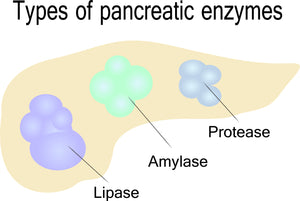

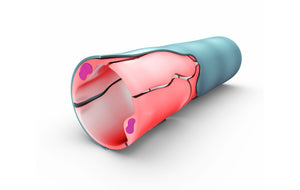
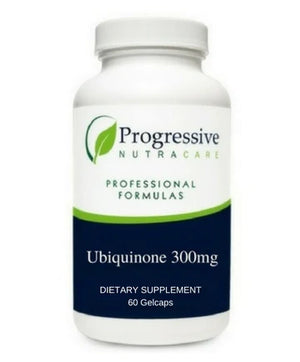
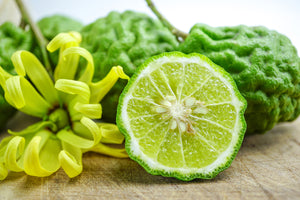
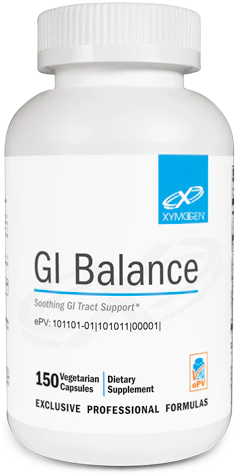
Comments 0